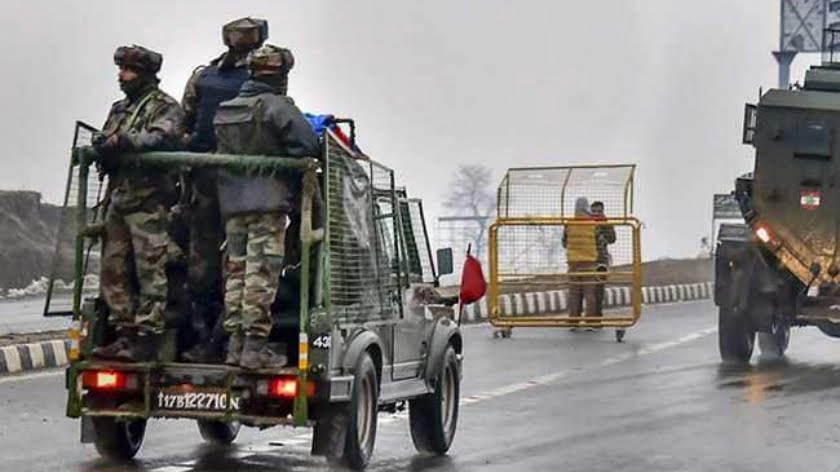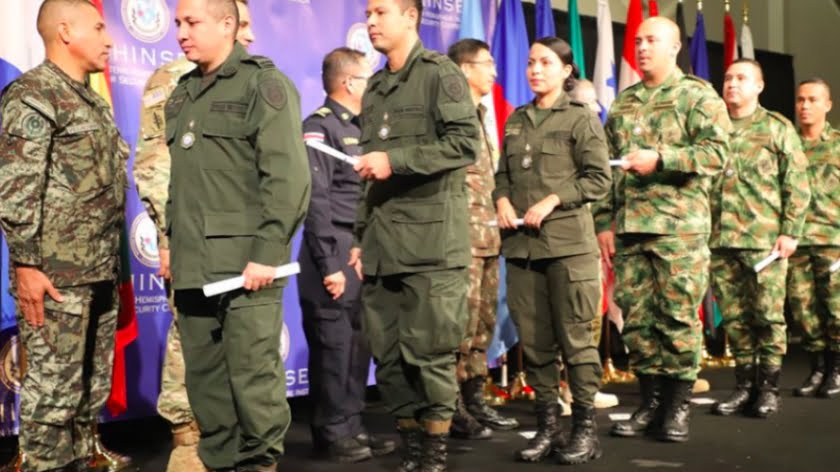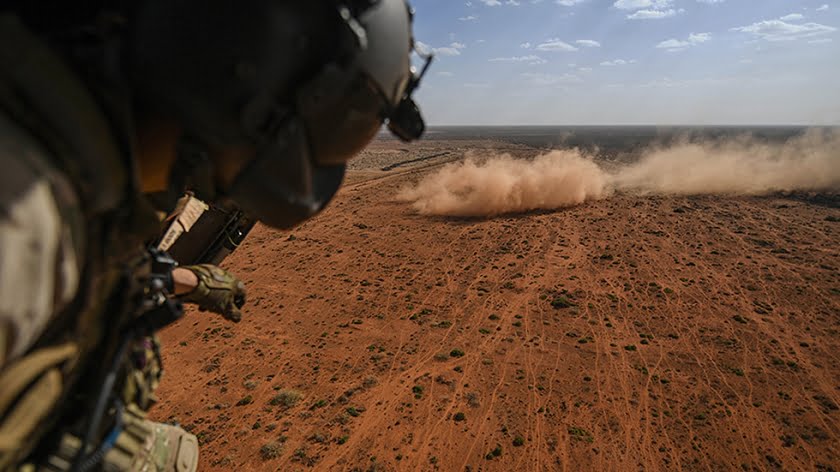Jammu and Kashmir: The Political Consequences of the Pulwama Attack
A native Kashmiri carried out the deadliest fedayeen attack against Indian occupation forces in history after he drove his explosive-laden vehicle into a 78-bus convoy and killed over 42 Central Reserve Police Force (CRPF) paramilitary troops, instantly drawing global attention to the indigenous struggle of his people and threatening to tip the electoral scales against Prime Minister Modi during this May’s general election.
The Pulwama “Surprise”
The world is still trying to make sense of the strategic significance of this week’s Pulwama attack, but there seems to be a consensus that it’ll have far-reaching political consequences that will reverberate for the indefinite future. A native Kashmiri just shocked all of India by carrying out the deadliest fedayeen attack against occupation forces in history after he drove his explosive-laden vehicle into a 78-bus convoy and killed over 42 Central Reserve Police Force (CRPF) paramilitary troops. The global reaction was swift and saw a group of prominent governments condemn what happened, which encouraged India to exploit this event for its own domestic and international political purposes by predictably blaming Pakistan.
The Pakistani Ministry of Foreign Affairs, however, said in a statement that “The attack in Pulwama in the Indian Occupied Jammu & Kashmir is a matter of grave concern. We have always condemned heightened acts of violence in the Valley. We strongly reject any insinuation by elements in the Indian government and media circles that seek to link the attack to the State of Pakistan without investigations.” Truth be told, although Jaish-e-Mohammed (JeM, designated as a terrorist group by the UN in general and specifically banned by a few of its individual members in particular such as Russia and Pakistan) claimed responsibility for the attack, it was nevertheless carried out by a native Kashmiri.
Pointing The Finger At Pakistan
Fake news abounds about the group’s alleged connections to the Pakistani state and its intelligence services, but the fact is that this was never proven and is actually a perfect example of a weaponized infowar narrative propagated for the Hybrid War purpose of increasing international pressure on Pakistan, including through the possibility of implementing sanctions against it on this pretext. India will undoubtedly seek to advance the latter scenario in parallel with encouraging allied forces in the American military, intelligence, and diplomatic bureaucracies (“deep state”) to make a media sensation out of what happened in order to embarrass the Trump Administration for diplomatically coordinating its Taliban peace talks with Pakistan.
The Bollywood-like drama that’s expected to unfold on the international stage as India ramps up its characteristic jingoism against Pakistan is partially intended to distract its people from the fact that the approximately half a million occupation troops in Kashmir couldn’t prevent a local man from pulling off the deadliest attack in the Valley’s history, an objective observation that’s “politically inconvenient” for Prime Minister Modi ahead of his heated battle for reelection this May. It speaks to the purely indigenous nature of this conflict that a native Kashmiri in one of the world’s most militarized regions (behind one of the world’s most heavily fortified frontiers) could successfully draw global attention to his cause in such a manner.
Bad News For The BJP
For as much as some in India think that their country could exploit that attention for its own benefit by attempting to misportray Pakistan as a “state sponsor of terrorism” like it always does whenever these types of attacks occur, there’s a very high likelihood that this will fail because of the profound risk that widespread awareness about the occupation forces’ “security inadequacies” in Kashmir will deepen the political divide among its already sharply polarized electorate and even elements of its own “deep state”. The first-mentioned fault line is obviously between pro- and anti-BJP activists, but also between those who support the ruling party but believe that Modi hasn’t been “tough enough” on Kashmir and especially Pakistan.
It’s possible that those disgruntled/disillusioned BJP supporters might vote for other candidates or sit out the elections entirely unless Modi resorts to spinning another fantasy about “surgical strikes” and the like, but even then, some of them might see through the charade. The anti-Modi opposition might also be super-charged by what happened because quite a few of them are against the government’s heavy-handedness in Kashmir and even privately believe that the region isn’t worth the cost of human lives, money, and self-inflicted damage to their country’s international reputation as a “democracy” to justify its continued occupation. The Pulwama attack will therefore make Modi’s reelection prospects all the less likely unless he doubles down on the neoliberal BJP’s fake populist promises.
India’s “Deep State” Divisions: Realists vs. Ideologues
On top of that, it can’t be discounted that the already dissatisfied factions of the Indian “deep state” might throw their weight against Modi’s reelection after concluding that he’s simply incapable of protecting India’s state interests as they understand them. After all, it was less than two months ago that Aslam Achu, RAW’s BLA asset who was accused of masterminding the Karachi terrorist attack in late-November, was assassinated in Afghanistan in a dramatic intelligence debacle that was either a false flag to get rid of a man who “knew too much” or an epic blunder on Modi’s part by sending such an important asset to a dangerous country where he was bound to die one way or another.
Achu’s assassination worsened the serious rift in RAW between the national security realists and the Hindutva ideologues, the former of whom are very critical of Modi’s irresponsible handling of security affairs (which began with his late-2015 de-facto blockade of Nepal and subsequent handing of India’s decades-long vassal to its Chinese rival as a result) while the latter blindly support him regardless of what he does out of loyalty to his tacit geostrategic vision of building “Akhand Bharat” (“Greater/Undivided India”). Suffice to say, the latest attack in Kashmir accentuated these acute “deep state” differences and might even lead to the rank-and-file realist faction “rebelling” against their BJP-imposed ideological bosses by “creatively discrediting” Modi and indirectly aiding the opposition.
Concluding Thoughts
India will do its utmost to distract the masses by making it seem like the Pulwama attack was a “terrorist conspiracy” carried out by the Pakistani state as an “act of war” against it even though this event was entirely executed by a local born-and-raised Kashmiri who was driven into desperation by the occupation forces’ abuses against his people. Try as it might, however, India won’t succeed in exploiting the global attention that this attack generated for the Kashmiri cause, with the most likely political outcome being that New Delhi’s efforts to deflect the blame away from itself and onto Islamabad will boomerang back and ultimately upset the country’s fragile domestic and “deep state” political balances.
The widening fault lines between the BJP and the opposition, within the BJP itself, and among the realist and ideologue factions of the country’s “deep state” might contribute to the ruling party’s underperformance in this May’s upcoming general elections and the creation of a coalition government that might implement much-needed checks and balances on the BJP’s authoritarian rule. As paradoxical as it may seem, this scenario would mean that the Pulwama attack might return India back to its self-professed “democratic” system, though it’s unlikely to lead to the restoration of democracy in Kashmir so long as the Indian state “others” the occupied people as Pakistanis and deprives them of their fundamental right to a referendum on self-determination.
By Andrew Korybko
Source: Eurasia Future







